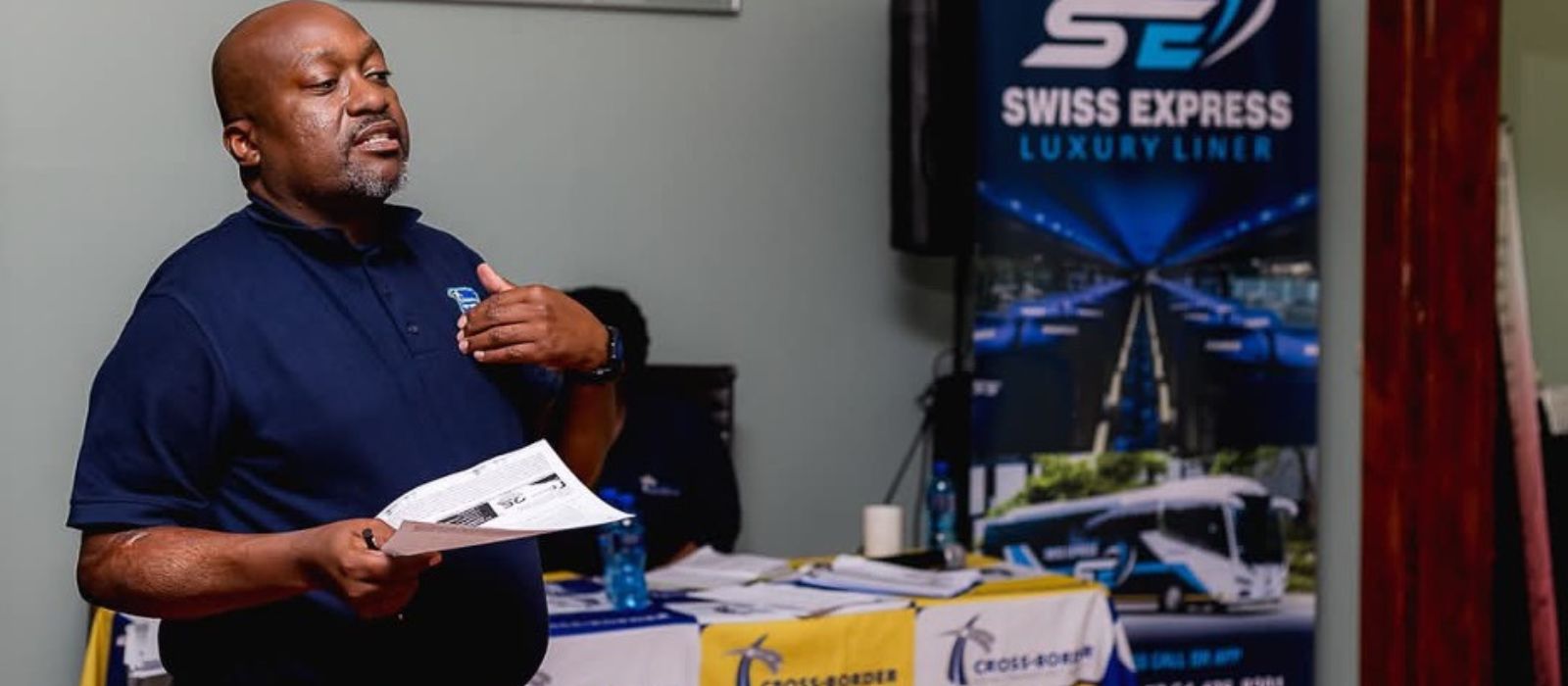
This festive season, a busy period for cross border buses, Tamuka Coaches ‘Chiutsi Utsi’ and Swiss Buses dumbed ‘Slay Queen’ by passengers are setting the gold standard for safety and reliability on the busy Johannesburg-Harare-Bulawayo route. While some have criticized them for speeding, others praise these companies for maintaining roadworthy fleets, being time-conscious, offering excellent customer care, having their paperwork in order, and avoiding overloading. Both companies actively use their Facebook pages to showcase their commitment to passenger safety through rigorous driver training programs and comprehensive bus testing, ensuring every journey is both safe and comfortable.
Tamuka Coaches and Swiss Buses have implemented extensive training programs for their drivers and health checks. These programs include advanced driving techniques, emergency response training, and regular performance evaluations. Drivers are trained to handle various road conditions and unexpected situations, ensuring they are well-prepared for the increased traffic and potential hazards of the festive season.
In addition to driver training, both companies conduct thorough bus testing. This includes pre-trip inspections, regular maintenance checks, and the use of cutting-edge technology to monitor vehicle performance courtesy of suppliers e.g. Scania. Tamuka Coaches, for instance, boasts a fleet equipped with advanced safety features such as stability control, anti-lock braking systems, and reinforced structures. Swiss Buses similarly prioritize safety with their state-of-the-art vehicles, ensuring that every bus is in top condition before hitting the road. While these measures do not make them immune to accidents or near misses, they significantly mitigate risks.
Unlike some operators, Tamuka Coaches and Swiss Buses do not use budget fleets of affordable Chinese brands. When it comes to bus safety, not all vehicles are created equal. The new G8 buses, Irizar Scania, MAN buses, and Mercedes-Benz models are often praised for their advanced safety features. These buses typically come equipped with robust braking systems, stability control, and reinforced structures designed to protect passengers in the event of a collision. Additionally, they offer comfortable seating with ample legroom, which can significantly reduce the risk of injury during an accident.
In contrast, Yutong buses from China, while popular for their affordability and availability, often fall short in terms of safety features. Critics point out that these buses may lack the advanced safety technologies found in their Western counterparts. Issues such as less effective braking systems, lower structural integrity, and cramped seating arrangements can make them more vulnerable in accidents.
Passengers have reported feeling less secure and less comfortable in Yutong buses, particularly on long cross-border journeys. These buses do not have onboard toilets, and recess stops are strongly discouraged for safety reasons, as bus operators fear the risk of robbery. As a result, frequent recess stops are avoided, which can lead to long-term health issues, as holding urine for extended periods may cause various complications such as:
- Pain and Discomfort: Ignoring the urge to urinate can cause pain in the bladder or kidneys and pelvic cramps.
- Urinary Tract Infections (UTIs): Holding urine allows bacteria to multiply, increasing the risk of UTIs.
- Bladder Stretching: Over time, this can cause the bladder to stretch, making it difficult to release urine normally.
- Kidney Damage: Increased pressure from holding urine can lead to kidney damage or infections.
- Weakened Bladder Muscles: Habitually holding urine can weaken bladder muscles, potentially leading to urinary incontinence.


To maintain good urinary health, it is recommended to empty your bladder every three to four hours. This means at least two stops on an eight-hour journey to the border, and two additional stops to Harare, or just one stop if traveling to Bulawayo.
Despite the efforts of companies like Tamuka Coaches and Swiss Buses, the festive season often brings an influx of unscrupulous operators rushing to meet the increased demand. Many of these operators own only a few buses, which are often overloaded and lack the necessary licenses and safety protocols, putting passengers’ lives at significant risk. During my visit to the Newtown Bus Station, it was clear that only a few buses were prioritizing safety over financial gain.
There is a pressing need for stricter licensing regulations for bus operators. Authorities should ensure that only those with a proven track record of safety and reliability are allowed to operate multiple buses. This would help mitigate the risks associated with overloading, speeding, and inadequate vehicle maintenance, which are common issues during peak travel periods. As we approach Christmas, it is crucial to choose bus operators that prioritize safety.
The tragic accidents on the Johannesburg-Harare-Bulawayo route serve as a powerful reminder of the importance of stringent safety standards for all buses, regardless of their origin. As the festive season continues, travellers are urged to prioritize safety and choose buses with proven safety records to ensure a safer journey for all. While there may be other buses that have undergone rigorous training programs and comprehensive bus testing, that information was not made public. Therefore, I can only give an opinion about the responsible operators who have offered transparency regarding their safety procedures.
The article aims to inform the public about safety measures and is not intended as a recommendation, nor does it imply that these buses are the preferred choice or immune to traffic accidents. It simply highlights the risk mitigation efforts being undertaken to enhance passenger safety. It is everyone’s responsibility to advocate for improved safety, greater transparency, and stricter licensing regulations for all buses to ensure safer journeys for everyone this holiday season.



